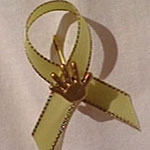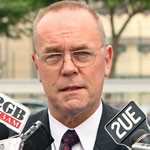http://news.bbc.co.uk/go/pr/fr/-/1/hi/world/asia-pacific/4487366.stm
An Australian drug smuggler has been executed at Singapore's Changi prison.
Nguyen Truong Van, 25, received a mandatory death sentence after being arrested at the country's airport in 2002 with 400g (14 ounces) of heroin.
He was hanged hours after his mother and twin brother had visited him and despite calls for clemency.
Protest vigils were held in Singapore and Australia, while Australian Attorney-General Philip Ruddock described the sentence as "barbaric".
Mr Ruddock said the case had mitigating circumstances, because Nguyen maintained he had smuggled the drugs to earn enough money to pay off legal bills of A$30,000 (£13,000) incurred by his twin brother, a former heroin addict.It's a most unfortunate, barbaric act that is occurring
Philip Ruddock Australian Attorney-General
Nguyen's case has prompted intense media coverage in Australia, though a poll released on Thursday suggested people were divided over whether the death penalty was justified.
Before the sentence was carried out, one of Nguyen's lawyers, Julian McMahon, described him as "completely rehabilitated, completely reformed, completely focused on doing what is good".
Another of his lawyers, Lex Lasry, said that his client was ready to die.
"We've just had a beautiful last visit. It was a great visit and quite uplifting," he said.
Strict laws
Nguyen's mother appeared at the jail for her last visit looking distressed.[Nguyen's mother had fought for clemency for her son]
During her son's captivity, she had been unable to have any physical contact with him, only being allowed to see and speak to him through a glass partition.
But the Singapore government gave the two permission to hold hands during their final meeting, following a personal appeal by Australia's Prime Minister John Howard. Nguyen was born in Vietnam but lived in Melbourne.
Singapore has some of the strictest drug trafficking laws in the world, and anyone found with 15g of heroin faces a mandatory death penalty.
According to Amnesty International, about 420 people have been hanged in Singapore since 1991, mostly for drugs offences.
Published: 2005/12/01 23:25:00 GMT



